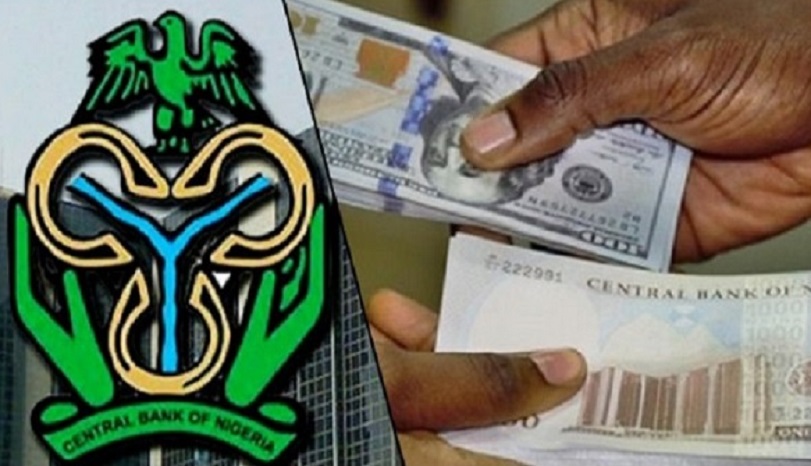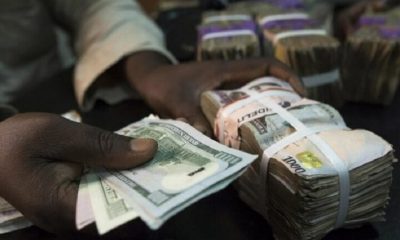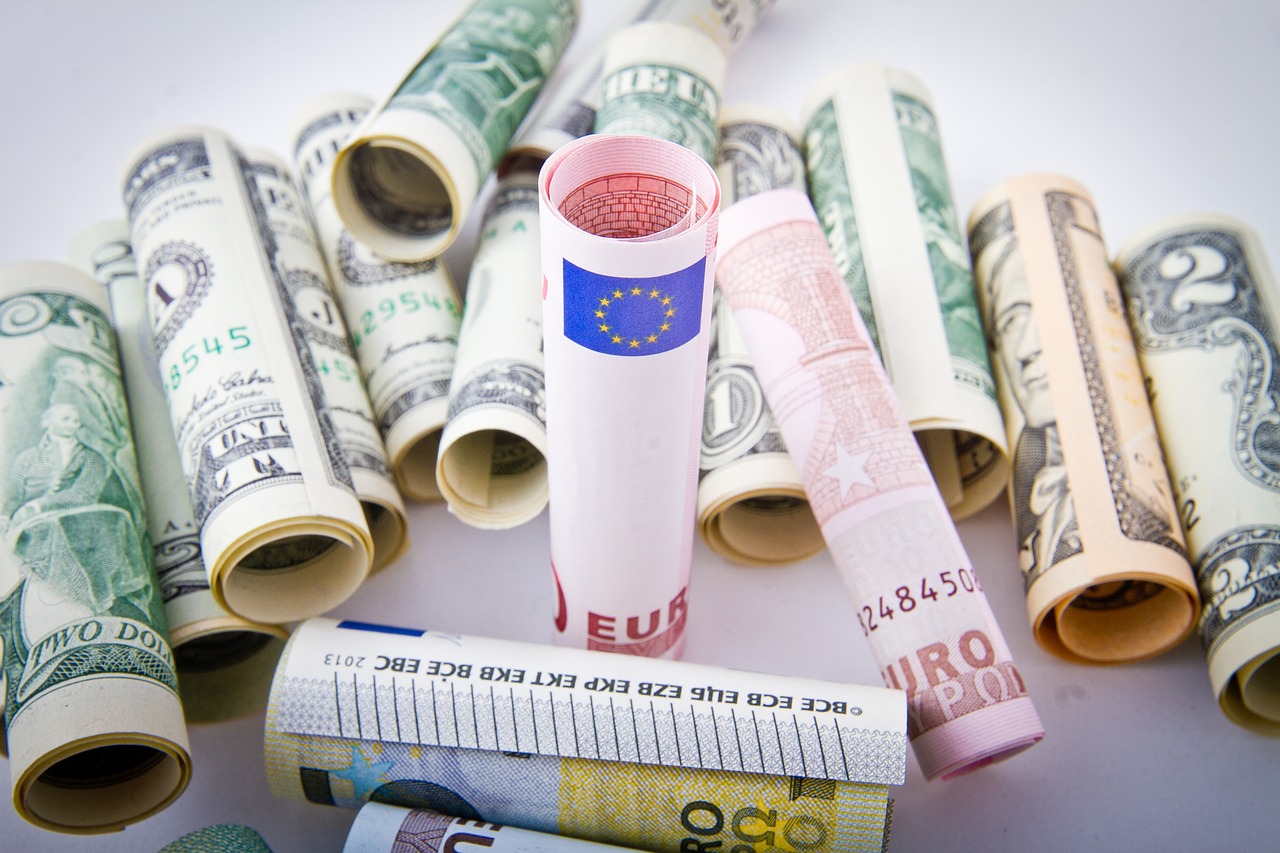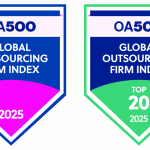Economy
BREAKING: Naira Makes Further Gain, Returns to N500/$
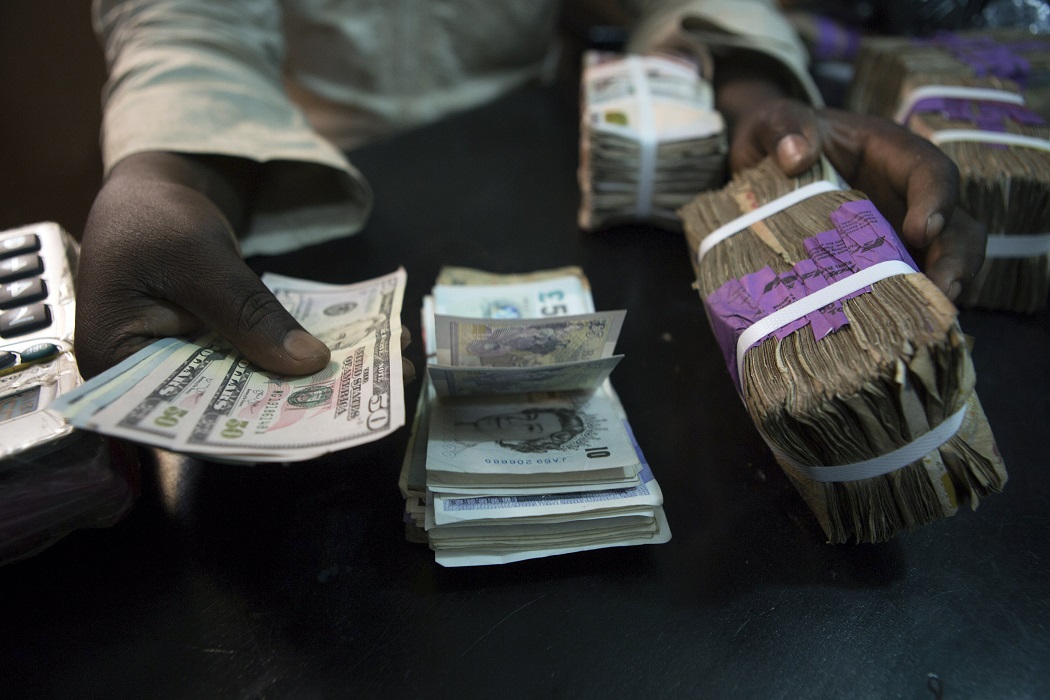
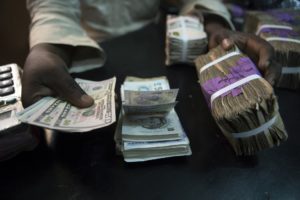
By Modupe Gbadeyanka
The Naira continued its further recovery run on Thursday afternoon when it exchanged at N500 to the Dollar at the parallel market.
About two weeks ago, the local currency first reached the N500 per Dollar mark before climbing to N522 this week, on Monday to be precise.
This forced the Central Bank of Nigeria (CBN) to release a new foreign exchange policy, which seems to have been working wonders.
Business Post correspondent reports that Naira opened at N505 against the Dollar this morning, but gained N5 to trade at N500 this afternoon.
Also, the Pound Sterling was exchanged for N600 compared with N620 it was traded this morning, while the Euro went for N510 in contrast to N520 it was exchanged on Thursday morning.
However, the Naira remained unchanged at the interbank segment of the market at N305.25k, while the Pound Sterling went for N378.75k and N321.58k to the Euro.
Economy
Total Value of Nigerian Stocks Now N68.105trn After 1.56% Rise
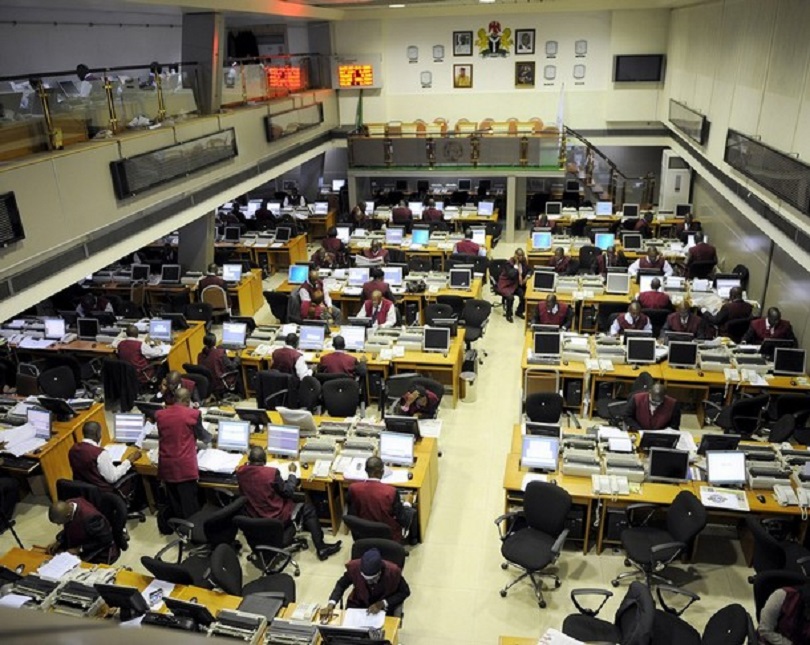
By Dipo Olowookere
A 1.56 per cent rise was recorded by the Nigerian Exchange (NGX) Limited on the back of renewed confidence in the market by investors.
The growth posted by Nigerian stocks during the session was significantly driven by demand for banking and energy equities.
The energy space appreciated by 2.97 per cent, the consumer goods index gained 1.75 per cent, the banking counter grew by 1.60 per cent, the commodity sector improved by 1.54 per cent, and the industrial goods index expanded by 0.08 per cent, while the insurance industry went down by 1.61 per cent.
At the close of business, the All-Share Index (ASI) chalked up 1,662.60 points to 108,361.10 points from the 106,698.50 points recorded a day earlier and the market capitalisation, which measures the total value of shares on the platform, increased by N1.045 trillion to N68.105 trillion from N67.060 trillion.
The trio of Ecobank, Northern Nigeria Four Mills, and Nestle Nigeria topped the gainers’ chart yesterday after they rose by 10.00 per cent each to N25.85, N82.50, and N1,210.00 apiece, as Beta Glass jumped by 9.98 per cent to N132.80, and Austin Laz leapt by 9.94 per cent to N1.88.
Conversely, Guinea Insurance led the losers’ group after it shed 8.70 per cent to 63 Kobo, DAAR Communications declined by 6.78 per cent to 55 Kobo, VFD Group lost 6.59 per cent to trade at N17.00, Coronation Insurance slumped by 6.07 per cent to N2.01, and Regency Alliance weakened by 4.69 per cent to 61 Kobo.
During the session, investors transacted 475.5 million stocks for N13.9 billion in 17,575 deals versus the 569.0 million stocks valued at N18.9 billion exchanged in 18,612 deals on Monday, representing a decline in the trading volume, value, and number of deals by 16.43 per cent, 26.46 per cent, and 5.57 per cent, respectively.
The busiest equity on Tuesday was Access Holdings with 103.9 million units worth N2.2 billion, GTCO exchanged 38.0 million units for N2.4 billion, UBA traded 30.7 million units valued at N1.1 billion, Sterling Holdings transacted 27.2 million units worth N147.2 million, and Zenith Bank sold 26.2 million units valued at N1.2 billion.
Economy
Dangote Packaging Explores Polypropylene Bag Exports to African Markets
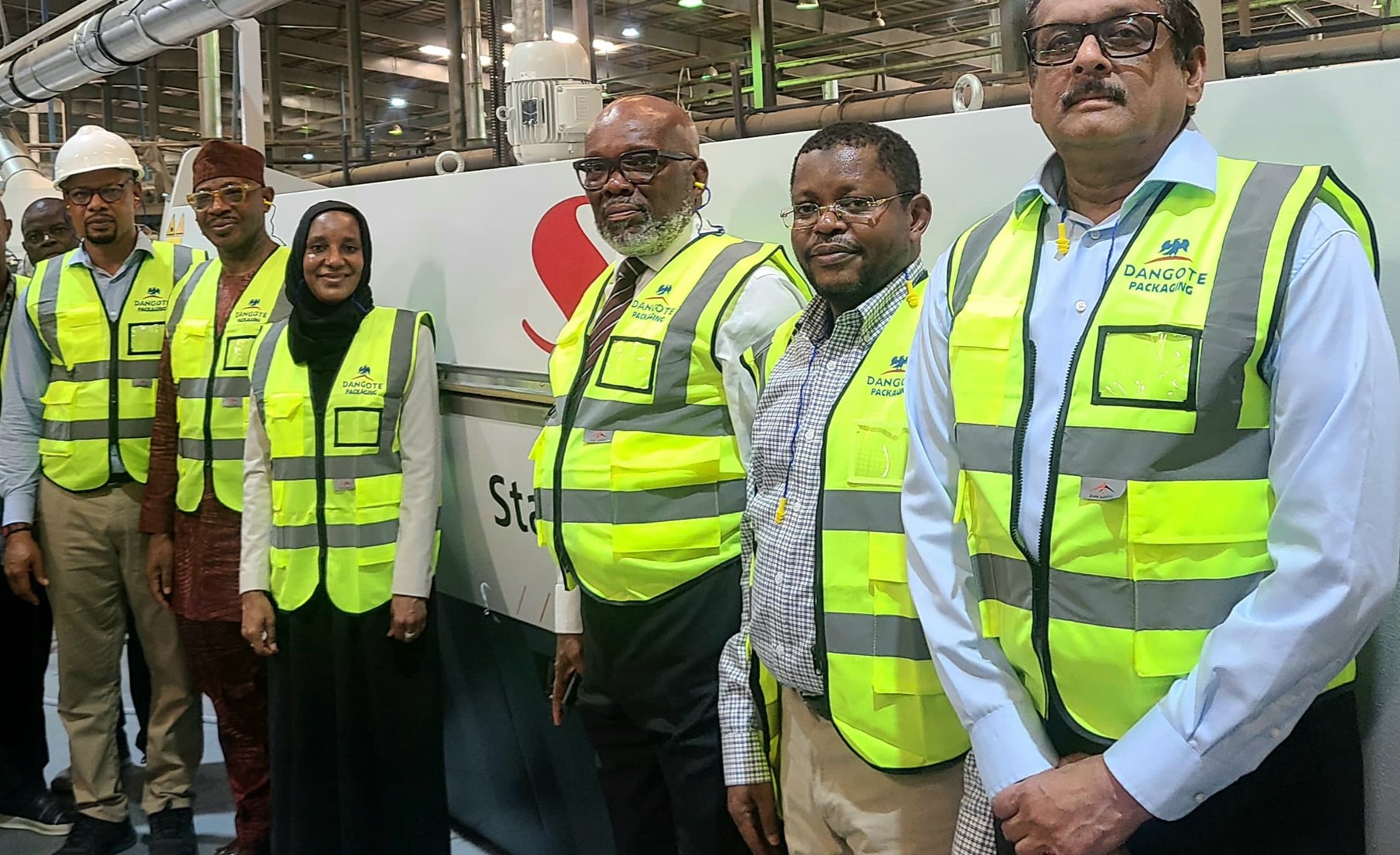
By Modupe Gbadeyanka
Following a production capacity boost facilitated by new machinery being commissioned in the two manufacturing plants, Dangote Packaging Limited (DPL) is planning to expand into the African export market.
With its production now up to 52 million polypropylene bags per month from 36 million, the management is exploring pushing the excess to other African markets to boost the Nigerian economy, particularly for foreign exchange (FX) earnings.
“With the current increase in production capacity, DPL is ready to explore markets across West, Central, and Southern Africa.
“Once domestic demand is met, it is only logical to channel our surplus to new territories. To this end, we have engaged an export team to lead the charge,” the chairman of the company’s board, Mr Robert Ade-Odiachi, said during a strategic board meeting held last Wednesday.
According to him, the entry into export markets will be backed by world-class standards, also hinting at the possibility of offering trade concessions to fast-track market penetration in target export regions.
“We are equipped with state-of-the-art machinery, skilled manpower, and robust systems. Our product quality is unmatched, and our pricing remains competitive,” he added.
DPL’s expansion is part of a wider strategic alignment with the growing demands of the Dangote Group’s industrial portfolio. The increase in production is expected to support the Group’s internal supply chain while also positioning DPL as a regional packaging powerhouse.
“With our refinery and petrochemical plants now supplying key raw materials, we have achieved self-sufficiency, further reinforcing our long-term growth prospects,” Mr Ade-Odiachi said.
Also speaking at the meeting, Dangote Group Treasurer and DPL Board Member, Mr Mustapha Matawalle, stressed the economic benefits of the expansion.
“This is not just about market dominance and revenue generation,” he said. “It’s also about creating jobs and boosting Nigeria’s foreign exchange earnings through export activity,” he stated, lauding DPL’s commitment to Health, Safety, Security, and Environmental (HSSE) standards, noting that operations remain fully compliant with regulatory expectations.
The company’s new push follows the commissioning of advanced machinery in April, an event where DPL Managing Director, Mr Sai Prakash, described the equipment as cutting-edge and pivotal to enhanced productivity and product quality.
“With our rapidly expanding capabilities, stepping into the African market is a natural and timely progression,” Mr Sai Prakash said.
Economy
Retail vs. Institutional Forex Trading: What Nigerian Traders Need to Know

Most traders in Nigeria are retail traders. They use personal money and trade on online platforms. Understanding how retail trading compares to institutional trading helps new traders make better choices. Knowing the differences also helps traders set realistic goals and avoid common traps. Retail traders do not have the same power, tools, or market influence as institutions, but they can still grow their accounts with smart choices and consistent habits. This article will explain the key differences and how Nigerian retail traders can succeed by focusing on skill, discipline, and risk control.
What Is Retail Forex Trading?
Retail traders trade with their own money, usually in small amounts. They use mobile apps or desktop platforms like MetaTrader to buy and sell financial instruments. Retail trading is open to anyone with internet access and a small deposit, which makes it popular in Nigeria. However, retail traders usually have limited access to financial data, trading tools, and fast execution speeds.
What Is Institutional Trading?
Institutional trading is carried out by banks, hedge funds, and large financial firms. These institutions trade large volumes of money and have direct access to liquidity providers. They use advanced tools, private data feeds, and faster order execution. Their trading decisions are often based on deep market analysis and are supported by teams of professionals.
Key Differences Between Retail and Institutional Trading
- Capital: Institutions manage millions or even billions in assets. In contrast, retail traders often begin with as little as $100 or $1,000. The amount of capital affects how trades are placed and how much risk is taken.
- Tools and Access: Institutional traders use advanced trading software, direct market access, and exclusive data sources. Retail traders work with public platforms and slower data, which can limit their reaction time.
- Market Impact: Institutional traders place large orders that can influence price movement. Retail traders do not affect market direction due to the smaller size of their trades.
- Costs: Institutions pay lower fees and spreads because they trade in bulk. Retail traders usually face higher costs per trade, including wider spreads and commissions.
Can Retail FX Traders Succeed?
Yes, retail traders can succeed if they follow a clear plan and manage risk properly. Many individuals in Nigeria have turned small accounts into meaningful profits by being consistent and disciplined. They focus on learning, testing strategies, and avoiding emotional decisions. You can read about successful forex traders from Nigeria.
Tips for Retail Traders in Nigeria
Retail traders in Nigeria should focus on using a simple strategy that they understand clearly. They should risk only a small amount of their capital on each trade to avoid large losses. It is important to trade without emotion and to treat each trade as a learning opportunity to improve future decisions. Keeping a trading journal can also help track progress and find patterns in both success and failure.
-

 Feature/OPED5 years ago
Feature/OPED5 years agoDavos was Different this year
-
Travel/Tourism9 years ago
Lagos Seals Western Lodge Hotel In Ikorodu
-

 Showbiz2 years ago
Showbiz2 years agoEstranged Lover Releases Videos of Empress Njamah Bathing
-

 Banking7 years ago
Banking7 years agoSort Codes of GTBank Branches in Nigeria
-

 Economy2 years ago
Economy2 years agoSubsidy Removal: CNG at N130 Per Litre Cheaper Than Petrol—IPMAN
-

 Banking2 years ago
Banking2 years agoFirst Bank Announces Planned Downtime
-

 Sports2 years ago
Sports2 years agoHighest Paid Nigerian Footballer – How Much Do Nigerian Footballers Earn
-

 Technology4 years ago
Technology4 years agoHow To Link Your MTN, Airtel, Glo, 9mobile Lines to NIN





